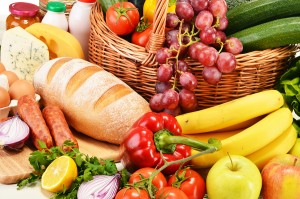One of the trickiest things when working through recovery regardless of whether you are an emotional eater, anorexic or bulimic is the piece around listening to your body and paying attention to what makes it feel good. For so long you have been doing the opposite by ignoring it’s cues and it’s responses. While the first part of recovery with regards to food consumption is making sure you are eating (if you restrict) or to reduce eating your feelings, the next step is listening to what makes your body feel good. While many of us know that there are foods out there that nutritionally support us and foods that don’t, we often don’t pay attention to how our body feels after eating certain foods. I don’t believe that you have to live off leafy greens in order to be healthy but I do believe that we also shouldn’t undermine the role of nutrition in our recovery.
When we struggle with disordered eating or an eating disorder we aren’t always aware of how we feel but as we start to recover this can become easier. Like I said above, the most important thing for me is that you start just by getting food in (or stopping when you are no longer hungry) but once  you have this down I recommend you ask yourself how you want your body to feel. If feeling good is important to you then you want to start paying attention to the foods that make you crash, leave you grumpy or make you feel sluggish. The next step is paying attention to the foods that make you feel clean, energized, healthy, and strong.
you have this down I recommend you ask yourself how you want your body to feel. If feeling good is important to you then you want to start paying attention to the foods that make you crash, leave you grumpy or make you feel sluggish. The next step is paying attention to the foods that make you feel clean, energized, healthy, and strong.
By choosing to eat foods that make you feel good it will make the recovery process easier. When you feel good you want to keep feeling good. Additionally, while it won’t decrease the anxiety entirely, it will be easier to work through the anxiety if your body feels clean instead of sluggish and bloated. Putting nutritionally dense food in our body will allow your body to use the food to repair and heal itself from the abuse and neglect caused by your eating disorder.
While I am not a dietician or a nutritionist one of the most basic recommendations I make is to find snacks/meals that you love and make them colorful. For example add fruit to your yogurt in the morning, or have some celery or carrots with hummus. If you love certain foods (ex/fresh berries) but find the cost difficult to swallow, give yourself permission to invest in yourself at least every other day. I know it can be expensive but it helps make recovery easier when we allow ourselves to eat the foods we genuinely enjoy.



Hi Kaela….Thanks that was interesting. On the subject of food costs /fruits..i get a really great deal for my smoothies at no frills on Broadway. It is a large 2kg bag in freezer section…for maybe 13.00 or so.
Anyways i just wanted to put that info out there.
Lisa